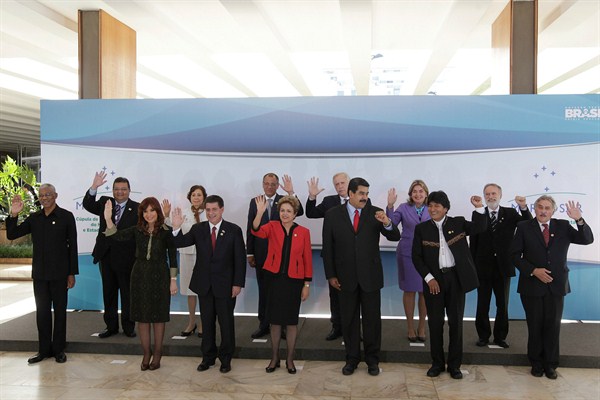As if there were any doubt, it is increasingly clear that Venezuela’s profound political and economic crisis is not confined to its borders. The repercussions of the country’s humanitarian disaster and creeping authoritarianism are spreading throughout Latin America, posing tough choices for its neighbors and straining hemispheric relations. How best to deal with the Venezuela question is also making it even more difficult to set common policies to address the region’s economic stagnation.
Nowhere is this problem clearer than in Mercosur, the Common Market of the South, an integration mechanism founded in 1991 by Brazil, Argentina, Uruguay and Paraguay, which Venezuela joined in 2012. The sub-regional trade bloc is experiencing the worst internal turmoil of its history, in part thanks to a controversy set off by Venezuela.
Every six months, Mercosur’s presidency rotates among its members in alphabetical order. Since Uruguay’s presidency ended in July 2016, Venezuela was in line to assume the bloc’s leadership. But the governments of Argentina, Brazil and Paraguay have attempted to prevent Caracas from assuming the presidency pro-tempore. Paraguay has even broken its diplomatic relations with Venezuela following heated exchanges between their foreign ministers. Only Uruguay has supported Venezuela and criticized the other members for not acting in accordance with Mercosur’s procedures.

